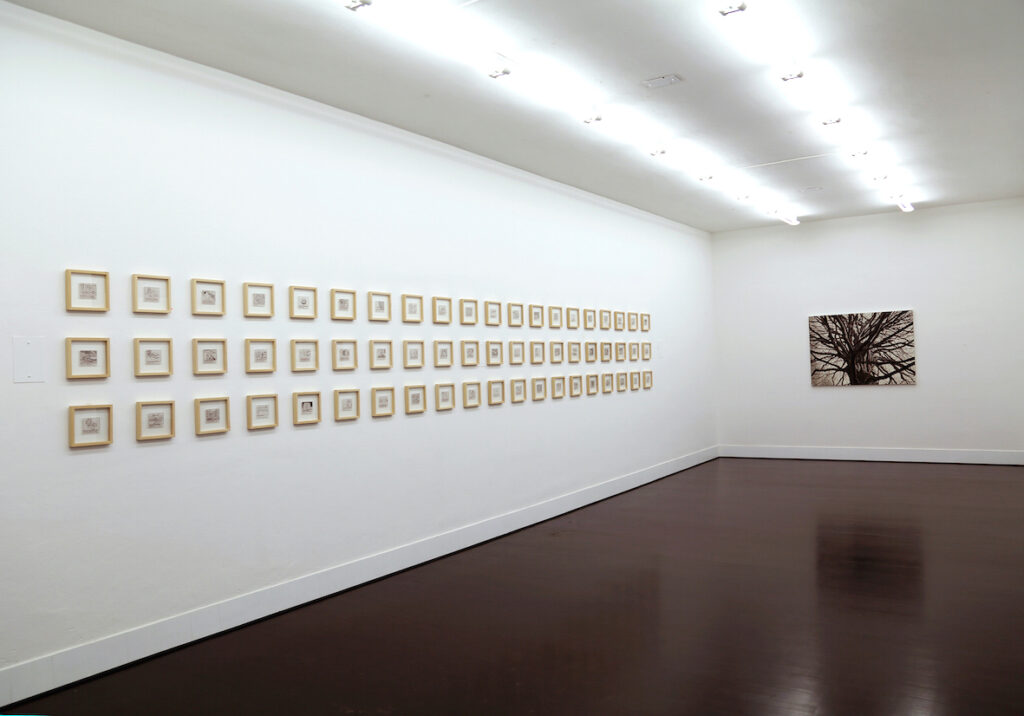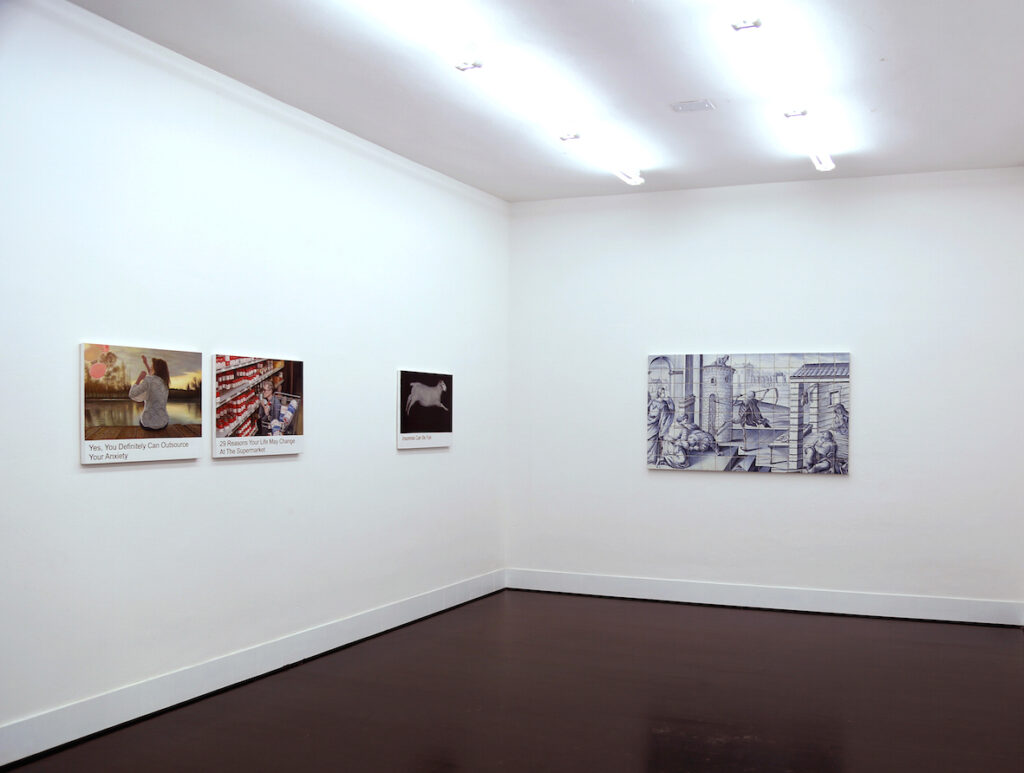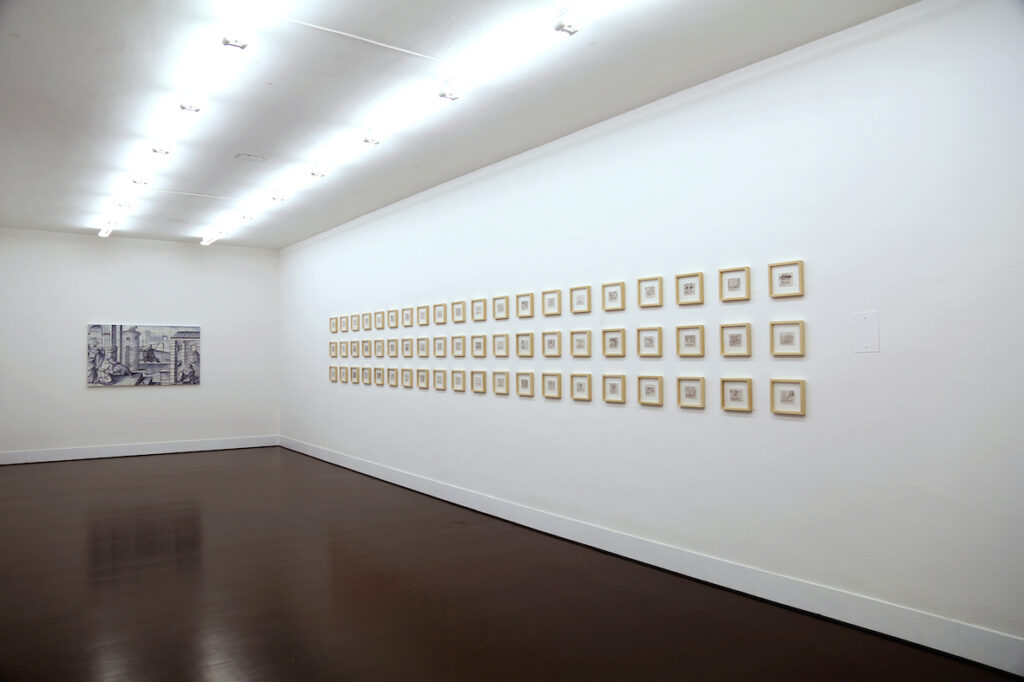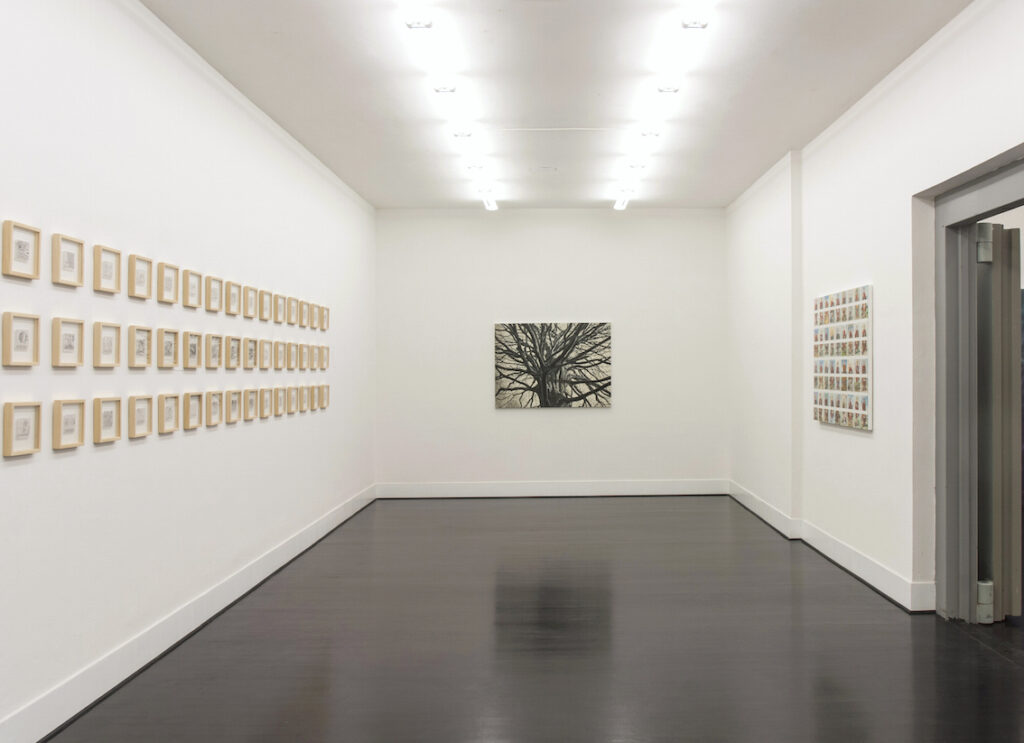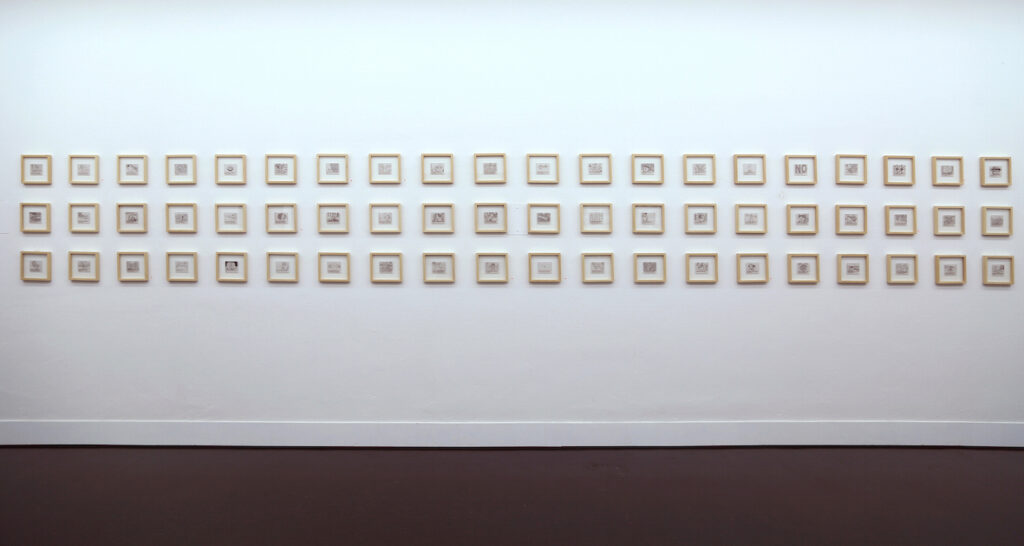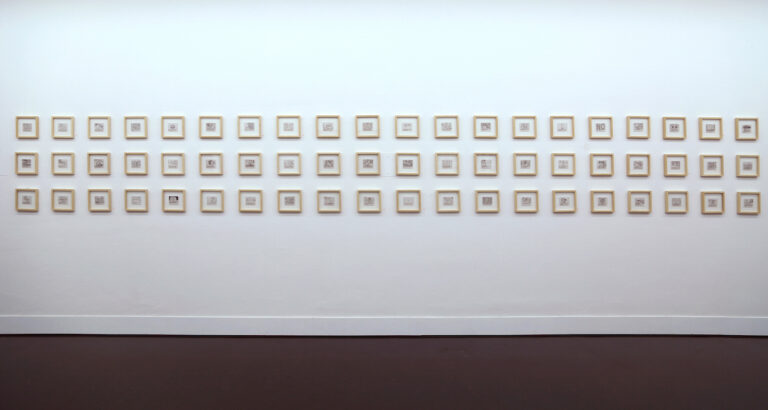
Galleria Pack, Milan, is pleased to announce their first collaboration with the Milan-based Brazilian artist Debora Hirsch. The exhibition is entitled donotclickthru. It will open on 17th of March And run till June 2nd.
Hirsch’s artwork is often conceptual and appropriative as she gathers visuals (images and texts) from a wide variety of media to build her own perspective through drawings, paintings, videos and other forms. Her work for this exhibition does not suggest an emotional or political agenda. Rather, Hirsch’s work deals with the influence on culture and society of contemporary means of communication and technology. “If everything is out there, what is left within you?” asks one of her drawings.
Hirsch explores our human condition, including vulnerabilities and contradictions, without leaving any space for a judgmental attitude, axioms and clichés.
The imperative sentence donotclickthru is also the url of the website related to the work: www.donotclickthru.com. ‘The aim of the website is to get zero clicks.’ It presents a succession of images, drawings and texts, which simulate the typical web format of communication. It may work like a trap for humans in which we, reduced to mice, go for an invisible, immaterial and odourless piece of cheese. We are presented to the Internet ephemera — a trap that may transform a possibility into a must, a doubt into a certainty and a minority into a majority of people, or everybody. Anything can be turned into a list, no matter whether meaningless or fictitious. Our curiosity gets triggered; we must fill that knowledge gap. Clicking is the perfect type of pleasure. Clicking is exquisite and it leaves one unsatisfied. The more you find the content disappointing, the more you will come across it again. What goes around, comes around.’
In the paintings on show, Hirsch acts as the narrator of some precise historical moments. Such moments regard the Brazil’s colonial period, the pre-digital era in which viral pervasiveness could be only analogical, the current digital society, and the time still to come. “We may think about the digital world as a sophisticated reflection device, a relentless mirror. Mirrors are destabilising but we are fascinated by them as our reality attracts and terrifies us. The Narcissus myth, recreated by Borges, reminds us that one cannot stand that tension for long. We have never had so many reflective surfaces and information.”
In the exhibition, Hirsch reflects about the democratic, horizontal, non-hierarchical, interactive, symmetrical, empowered way to communicate that technology has given us. However, paradoxically the new technology has also given us a “life that is destined to be so predictable and controlled, condemned to overexposure and lack of privacy, a freaking orderly society.”
Ph. Antonio Maniscalco

